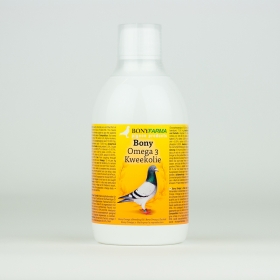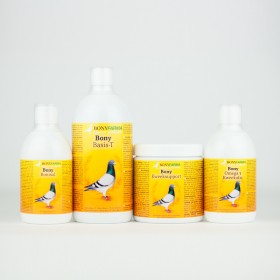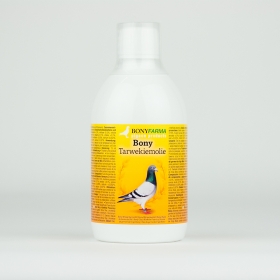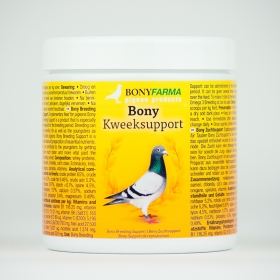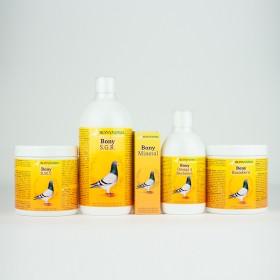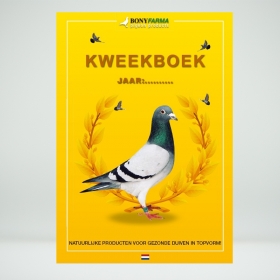|
Breeding
The winter months
As soon as the winter months are approaching, many enthusiasts start making plans to pair up again. Finding new possible couples and re-pairing is usually an interesting activity. Also fitting in newly purchased pigeons.
As far as the latter is concerned, a Danish enthusiast who recently visited the practice had a striking remark. These pigeons simply have to be quarantined for a while before they are placed with their own breeding pigeons. It is best to have the pigeons examined for hidden infections. But often this is not immediately possible. Yet I do not want to give the fanciers a living who do not know what happened the year after a sublime pigeon year. "I'm doing exactly the same as last year, but it's not going anywhere and I'm constantly losing experienced pigeons." I invariably ask whether the fancier has purchased new pigeons that have been placed with his racing or breeding pigeons. Sometimes these new pigeons are even brought along.
Bully
Not always, but often enough, a dragged-in infection with the 'Bully' appears to be the cause of the misery. The winter months are pre-eminently the time that we detect this bacterium during checks when making a throat swab. However, we advise enthusiasts who have been shown to have this bacterium not to start curing immediately. It is like carrying water to the sea. Because this bacterium can form a kind of slime layer (Matrix), it can survive well in a cold and damp loft. Curing the pigeons in these lofts is therefore not of much use. However, the lofts can be properly disinfected with Virkon S® to reduce the infection pressure of these and other pathogens. Experience shows that curing in the deep autumn does limit the problem, but in early spring this germ is usually detectable again.
Surprised
Many of these fanciers tell me that their pigeons get into shape later, because they have a garden loft. Heat decreases the infection pressure with this bacterium, so that the pigeons can get into shape. These fanciers are also very surprised when they can immediately achieve results after a targeted cure against this germ in early spring.
But in principle, in the winter months it means that curing is like mopping with the tap open. Paratyphoid cures during that time can aggravate the problem if this germ is present.
So it is best to have new pigeons examined before they are placed with the other pigeons. Illness induction happens quickly.
Negative effect on fertility
With many things in the pigeon sport you assume that everyone knows it. Yet in recent weeks I noticed that simple things are not known to everyone. Often not with the younger enthusiasts. For example, a few fanciers wanted to cure the pigeons against the yellow just before the breeding period. However, it is better to leave that alone.
All agents against the cancker (so-called imidazole compounds) have a negative effect on fertility. The quality of the sperm is negatively affected for about 6 weeks. In many cases you will not notice this because there will still be enough active sperm cells left. But it is precisely the older cocks where the quality of the sperm sometimes leaves something to be desired, can then be pushed just over the (temporary) edge of infertility, so that the first round of eggs for these pigeons remains empty. Therefore it is better to cure the eggs with these agents.
Cause
Personally, that is the only time with my breeders that the pigeons get cancker capsules two days in a row. Drinking water cures are usually completely ineffective in winter breeding. Dozens of fanciers are amazed when their pigeons are full of yellow when checked. Especially if they have put something in the drinking pot very shortly before. It does not matter which drug is used by whom. The pigeons simply drink too little. That's the cause. If one does not want to take the trouble to put on capsules or pills, then one should administer the cure over the food for at least 8 days.
As with all resistance, the resistance of the cancker parasites to all canckerish agents used is still increasing. Old doses are often completely insufficient at this time.
Dotting the i
In the run-up to the breeding season, it may be desirable for older pigeons to get extra vitamin E to increase fertility. Like many readers,
I used to think that concentrated preparations containing only vitamin E would be the most suitable. However, these preparations usually contain only the so-called alpha tocopherol. However, vitamin E consists of eight tocopherols, all of which have a specific effect. When using the correct form, the body will then make the choice for the form that is available. In the case of artificial products, this is usually alpha tocopherol.
Not that this is so disastrous but if you want to dot the i's and i's and work optimally, it is better to take a natural source of vitamin E that contains most if not all forms of the E vitamin. Bony Wheat Germ Oil is a good choice in those cases. November is the month in which I use wheat germ oil as an adhesive for the base core and feed the Bio BMT.
Beautiful younsters
From the coupling, our pigeons get breeding oil instead of wheat germ oil because it contains a lot of omega 3 fatty acids (EPA and DHA) to support optimal brain development. The aim is to optimize the content of this oil in the egg for this. This is not necessary during incubation, but shortly before the eggs hatch I start doing this together with the breeding support. Bony Breeding Support contributes to ensuring that the young pigeons have everything they need during the first weeks of their lives. I used to give it about 3 times a week. Now in a slightly lower dose every day until shedding. Beautiful youngsters are the end result.
Good Luck,
Peter Boskamp
 |







